Today in Japan ~ 15 June 2021 (旧暦 2021/5/6)
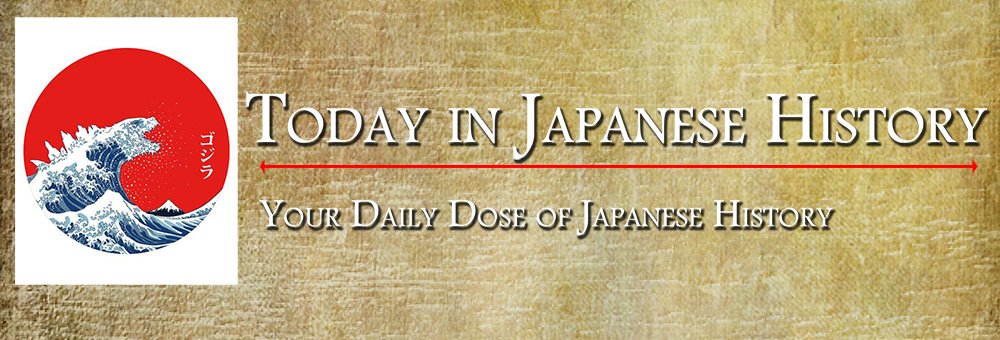
And here is your daily almanac for Tuesday the fifteenth of June, 2021.
Today is butsumetsu (仏滅), one of the rokuyō, the Buddhist horoscope. Ah, here we are... the most unlucky day. Bad luck in most everything, so you might want to just hide under the bed at home. (If you forget the details of the rokuyō, see this post)
It is the fifth day of kusaretaru kusa hotaruto naru (腐草為螢), which translates to something like "Decaying Grass becomes Fireflies". This is when the much beloved fireflies start to come out. Though they are not nearly as common these days as they were even a generation ago, they can still be seen in darker, more quiet and less polluted places away from the city.
On the old calendar (旧暦) today would have been the sixth day of the fifth month.
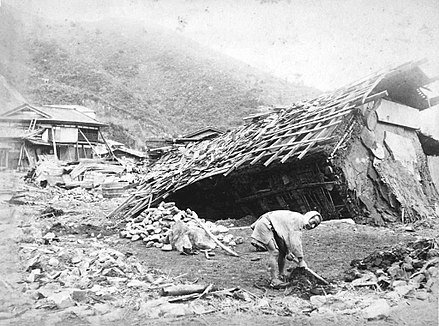
Today in 1896 was one of the deadliest tsunamis in Japanese history, killing more than 22,000 people. At 7:32pm, a 8.5 quake hit off the cost of Iwate. It resulted in two tsunamis which destroyed 9000 homes and caused more than 22,000 deaths. The waves reached a height of 38.2 meters (125 feet), which would remain a record until the waves from the Tohoku quake surpassed it by over 2 meters.
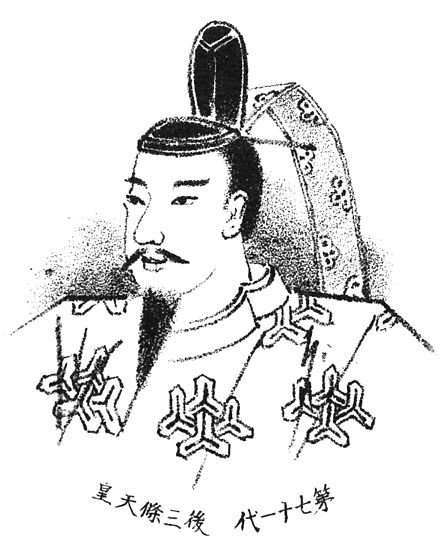
This day in 1073 marks the death of Emperor Go-Sanjō (後三条天皇), the 71st emperor in the traditional order. Born as Takahito in 1032, he ascended the throne at age 36 in 1068. His biggest legacy was in finally breaking the grip of the Fujiwara over the Imperial family. He abdicated in favor of his son in January of 1073, entered the priesthood, and died shortly later.
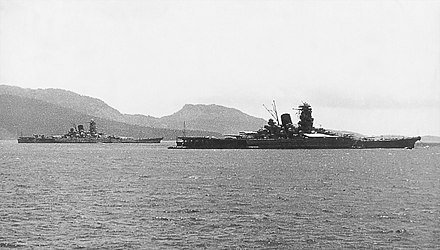
On this day in 1944 the US invaded Saipan, then the capital of Japan's South Seas Mandate. This marks the beginning of the Battle of Saipan, which would last until the 9th of July, which has been called the "Pacific D-Day". In the end, almost the entire Japanese garrison of troops on the island died, at least 29,000, while for the US 2949 were killed and 110,464 were wounded. More than 100 Japanese civilians committed suicide, many of them jumping from what would later be called Suicide Cliff and Banzai Cliff. The loss of Saipan led to the eventual resignation of Prime Minister Tōjō and put the main island of Japan within range of US bombers.
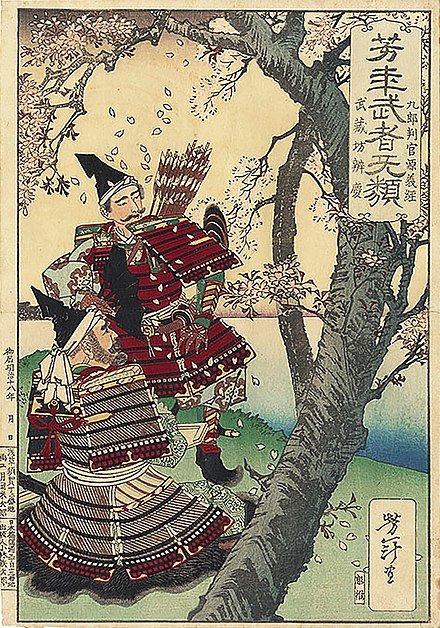
Today in 1189, Minamoto no Yoshitsune (源義経), one of the biggest and most important names in Japanese history, died. He is considered one of the greatest generals in Japanese history, and one of the greatest samurai of his era. Born in 1159, he was a Minamoto general who defeated the Taira clan in several key battles, including the famous Battle of Dan-no-Ura, which may be the most famous battle in Japanese history, and helped his half-brother Yoritomo become Shogun, establishing the Kamakura Shogunate.
I'm writing "most famous/greatest/most important in Japanese history" a lot, aren't I? That just goes to show how highly he is thought of.
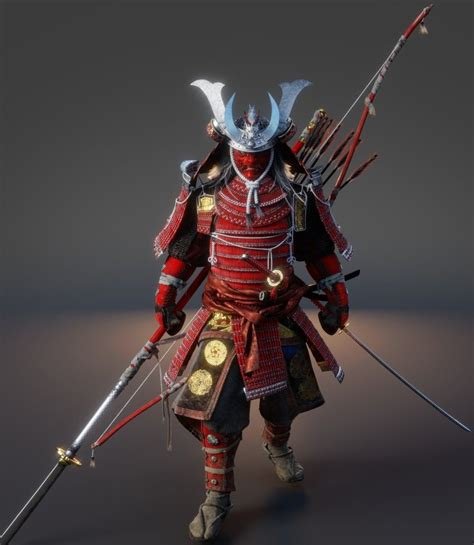
Unfortunately it didn't end well for him. Following the Gensei War, he was appointed governor of Iyo (modern day Ehime Prefecture) and given many titles by the former emperor Go-Shirakawa. Yoritomo grew suspicious and eventually tried to arrest his half-brother. On the run, Yoshitsune eventually received the protection of Fujiwara no Hidehira and lived peacefully at his town. Upon Hidehira's death, his son, Yasuhira, promised to uphold his father's pledge of protection, so all seemed good. However, Yoritomo, twisted the heart of Yasuhira against Yoshitsune. Yasuhira betrayed him, surrounding his residence and killing everyone within including his mistress and unborn son,[1] forcing Yoshitsune to commit seppuku.
Centuries later, Bashō would visit the grounds of this betrayal and write:
夏草や兵どもが夢の跡
natsukusa ya tsuwamono-domo ga yume no ato
summer grass...
the only remains
of the soldiers' dreams
Last but not least
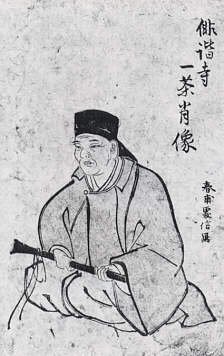
Today in 1763, Kobayashi Issa (小林 一茶) was born, considered one of the four greatest haiku poets in Japanese history and certainly the most beloved. Unlike Bashō who sought to uncover truth with his poems and wanted to push the art form, Issa was more concerned with playing. His verses show a joy and playfulness that gives him a childlike image, a surprise given his tragic life. His mother died when he was three, and his step-mother hated him, torturing him constantly until she convinced his father to send him away to Edo at age 15. He later married but all three of his children died, then his wife also died. Despite all the misery, he looked at life with an incredible sense of joy and this is reflected in most of his poems, of which there are over 20,000. He died in 1858 at age 64.
Here are a few poems from Issa, from the tragic to the playful.
Written upon the death of his wife:
生き残り生き残りたる寒さかな
ikinokori ikinokoritaru samusa kana
Outliving them
Outliving them all
Ah, the cold
On the experience we have all had of moving to do something, but then instantly forgetting what it was:
ふいと立おれをかがしの替哉
fui to tatsu ore o kagashi no kawari kana
suddenly I'm
standing, mind gone—
their new scarecrow
Taking pride in his aim:
真直な小便穴や門の雪
massuguna shōben ana ya kado no yuki
such a straight
piss hole!
in the snow by the door
Missing his wife:
小言いふ相手もあらばけふの月
kogoto iu aite mo araba kyou no tsuki
if only she were here
my nagging wife...
ah, tonight's moon
Watching a pair of frogs fighting for a mate:
痩蛙まけるな一茶是に有り
yasegaeru makeru na issa kore ni ari
puny frog
don't give up!
Issa is rooting for you
Talking with his gravekeeper:
我死なば墓守となれきりぎりす
ware shinaba haka mori to nare kirigirisu
after I die
guard my grave
cricket
That's all for today. Until next time: Be well, do good work, and keep in touch. Have a good day today!
❦
 | David LaSpina is an American photographer and translator lost in Japan, trying to capture the beauty of this country one photo at a time and searching for the perfect haiku. |
Though sources here are conflicted and some say his mistress and son survived. These may just be legend, however. A more fantastic Ainu legend says that Yoshitsune did not actually commit seppuku, but instead escaped, fleeing to Hokkaido and eventually mainland Asia where he resurfaced as Genghis Khan. ↩